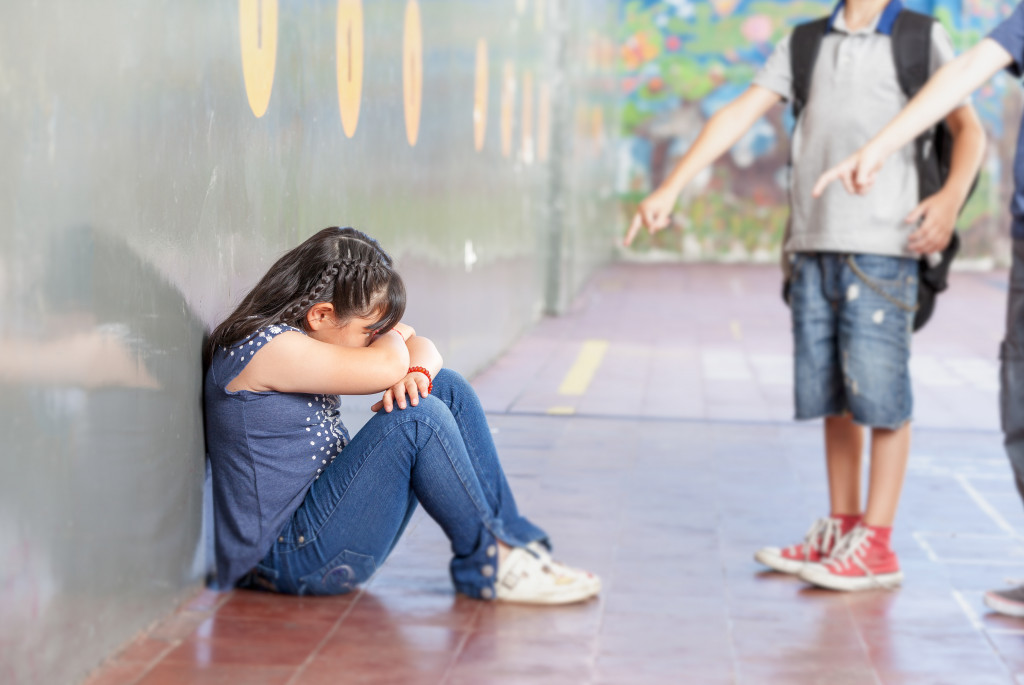- Bullying affects around 20% of U.S. students, significantly declining academic performance and self-esteem.
- Bullying can result in poor attendance rates, difficulty socializing, and various mental health problems.
- Charter high schools can provide a supportive, inclusive environment and innovative anti-bullying programs to combat bullying.
- A strong support network of friends, family, and educators can help students cope with bullying.
- Practicing online safety and digital literacy can help prevent cyberbullying and protect students’ well-being.
Bullying harms a person’s mental, emotional, and physical well-being. The effects of bullying are not limited to one’s personal life; they can also disrupt their education. Whether the bullying occurs on school premises or online, it can have similar effects that obstruct students’ learning journey. It is, therefore, incredibly vital to educate and raise awareness about how bullying can affect education. Here’s what you need to know about bullying, how it can affect your education, and what you can do about it.
Bullying in The U.S.
It’s estimated that about 20% of students in the country have reported being bullied. This can affect their studies in various ways. Here are some ways bullying can affect a student’s education:
1. Decline in Academic Performance
Bullying can cause a significant decline in academic performance. Research shows that students who undergo persistent bullying are more likely to experience a drop in their grades than those who have not undergone bullying. They tend to experience difficulty concentrating, retaining information, and performing well in school. This decline, over time, can lead to students losing interest in their education and feeling that they are not good enough to excel.

2. Poor Attendance
Bullying can also lead to poor attendance, which can cause students to miss out on important coursework and assignments. Bullied students tend to develop anxiety and dread about attending school, causing them to skip school altogether. The more time they miss school, the more they fall behind with their studies. As a result, it becomes increasingly difficult for them to catch up with their peers.
3. Self-Esteem Issues
Bullying can cause a student’s self-esteem to plummet. The negative feelings associated with being bullied can make students feel powerless, hopeless, and ashamed. As a result, they begin to internalize these feelings and believe they are not good enough to deserve a good education. These feelings can be long-lasting and affect students even after graduation. It can also lead to students questioning their self-worth, making it harder for them to perform academically.
4. Difficulty Socializing
Bullying can make it extremely difficult for students to socialize with others. Being bullied can cause students to become withdrawn and isolate themselves from their peers. They no longer feel comfortable initiating conversations and activities, leading to a lack of social interaction and feeling left out. Socialization is a critical aspect of education, as it helps students learn valuable social skills that can be beneficial in their personal lives and careers.
5. Mental Health Problems
Bullying can result in a myriad of mental health problems. These problems can be short-term, such as anxiety, depression, and stress, or long-term, such as post-traumatic stress disorder (PTSD) and suicidal thoughts. Students with mental health issues are more likely to struggle academically and may require additional support to keep up with their coursework.
Ways to Avoid or Reduce Bullying
If you want the best out of your education, you must find ways to avoid or reduce bullying. Here are three ways to do that.
Choosing the Right High School
High school is where most students get bullied, and that’s why this is important that you choose the right school for you. A charter high school can be beneficial for students, as they often foster a supportive and inclusive environment that can significantly reduce bullying. These schools typically have smaller student populations, leading to a more intimate, community-like atmosphere where everyone knows each other. This sense of familiarity and closeness can discourage bullying behavior.
Moreover, due to their operational autonomy, these can often implement innovative anti-bullying programs and policies. They may offer comprehensive bullying prevention programs, teacher training, and student workshops to raise awareness about bullying’s consequences and promote a culture of respect and empathy.

Developing Strong Support Networks
Building a strong support network can be a powerful tool to counteract and cope with bullying. This network can consist of friends, family, teachers, or school counselors available to provide emotional support, advice, and assistance in addressing bullying. Such a support system can reassure students that they are not alone and that others are willing to help them navigate this challenging situation.
Online Safety Measures
In an era of digital communication, cyberbullying has become a prevalent issue. Hence, understanding and practicing online safety is crucial. Students should be educated about not sharing personal or sensitive information online and being selective about who they interact with on social platforms. They should know how to report and block inappropriate or hurtful content. Schools and parents can also promote digital literacy lessons focusing on respectful and responsible online behavior.
Bullying is a pervasive issue that profoundly affects students’ education and well-being. The world must work together to foster an environment that discourages bullying and promotes respect, empathy, and inclusivity among students. Choosing a supportive school environment and practicing online safety are essential to achieving this goal. By addressing bullying head-on, the world can ensure every student has a safe and nurturing space to learn, grow, and thrive.

